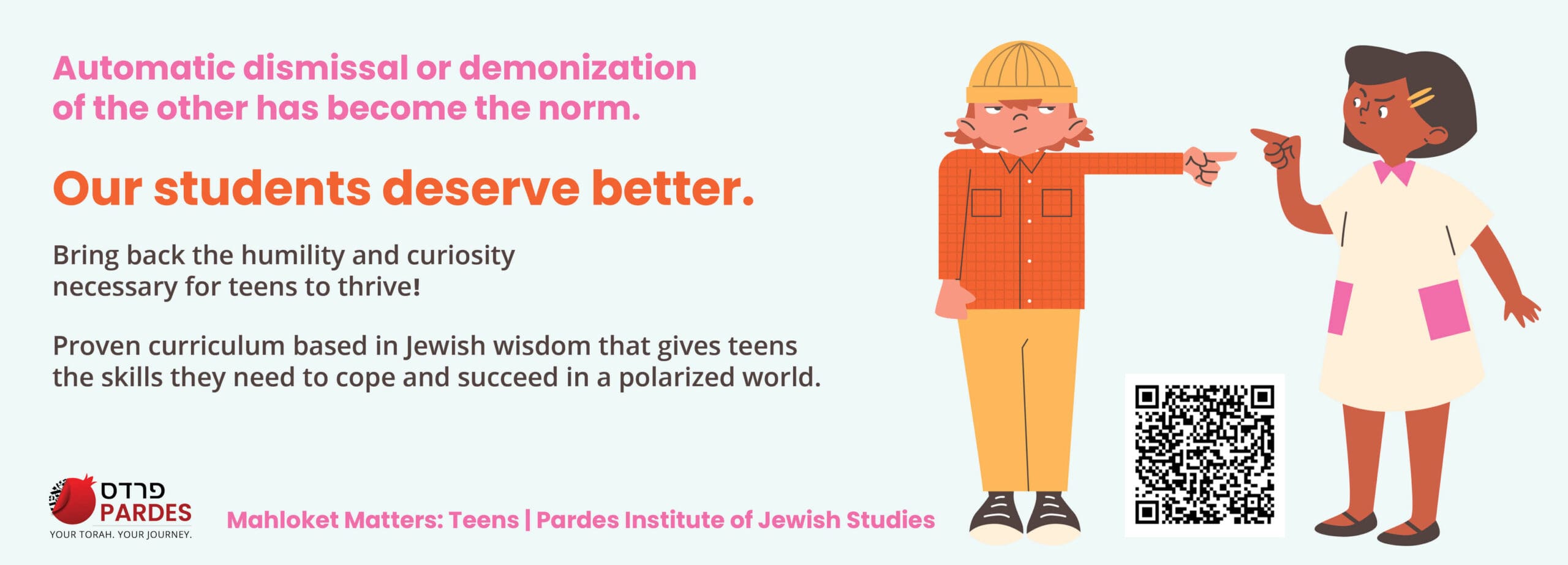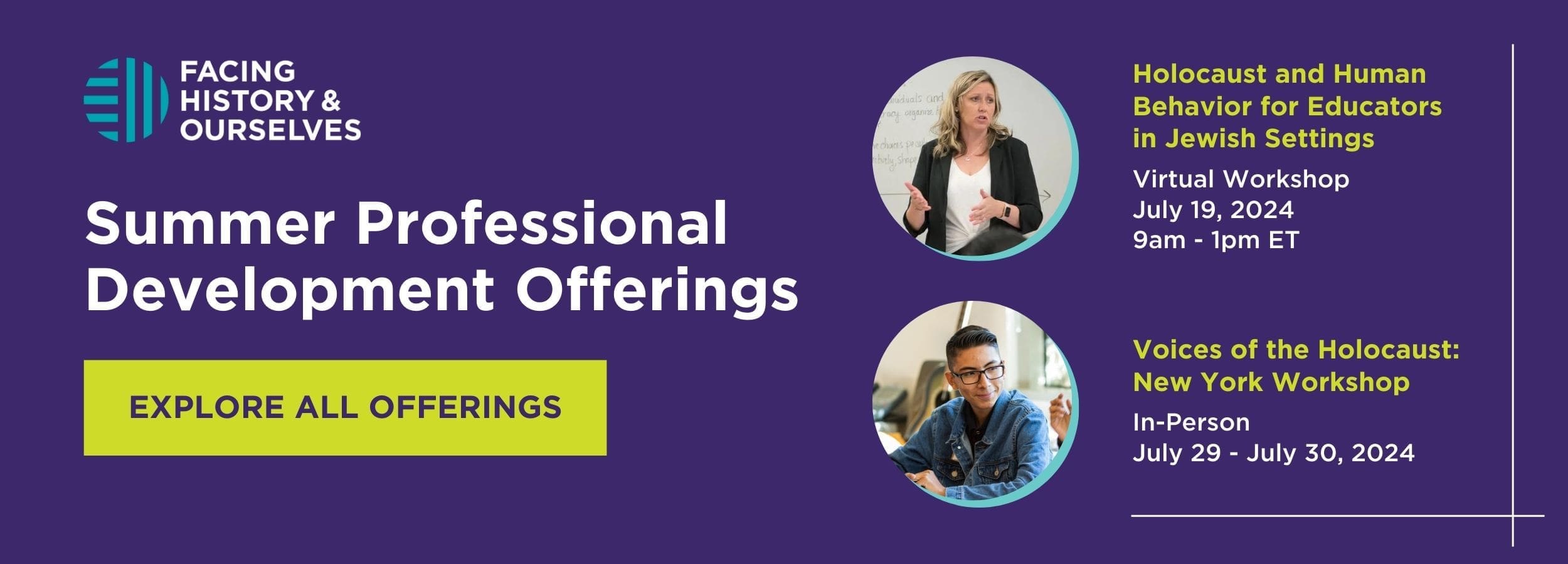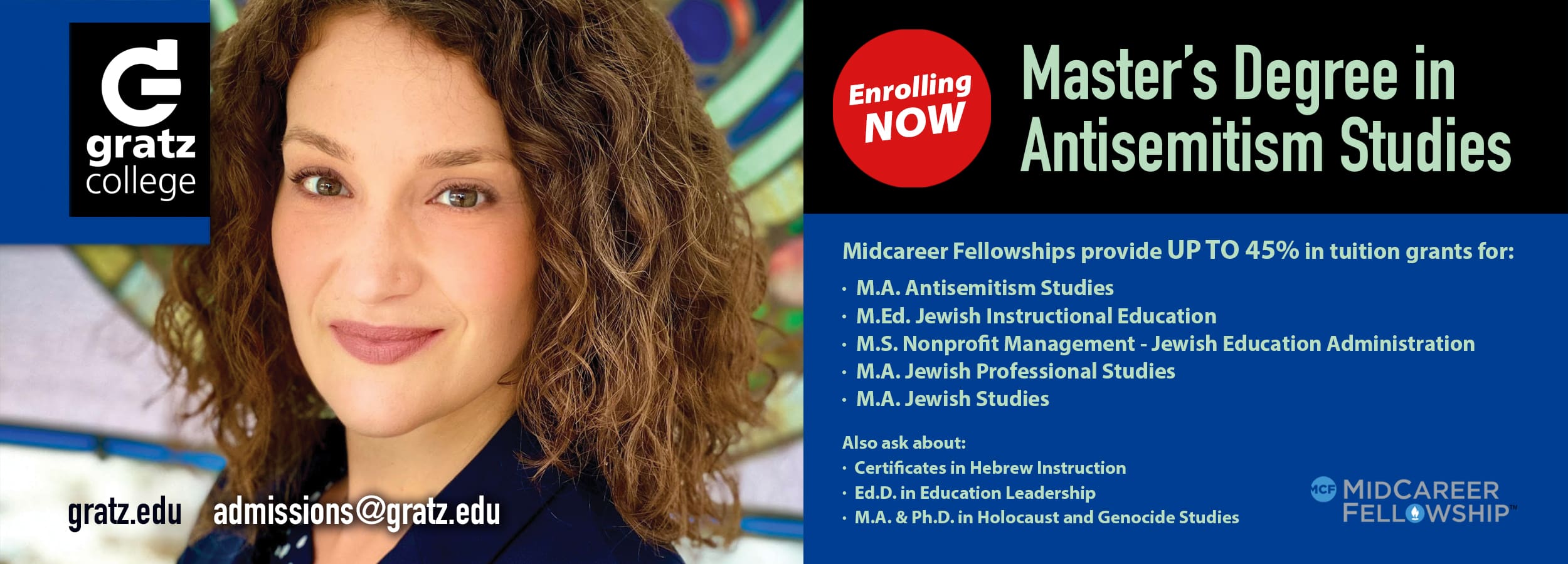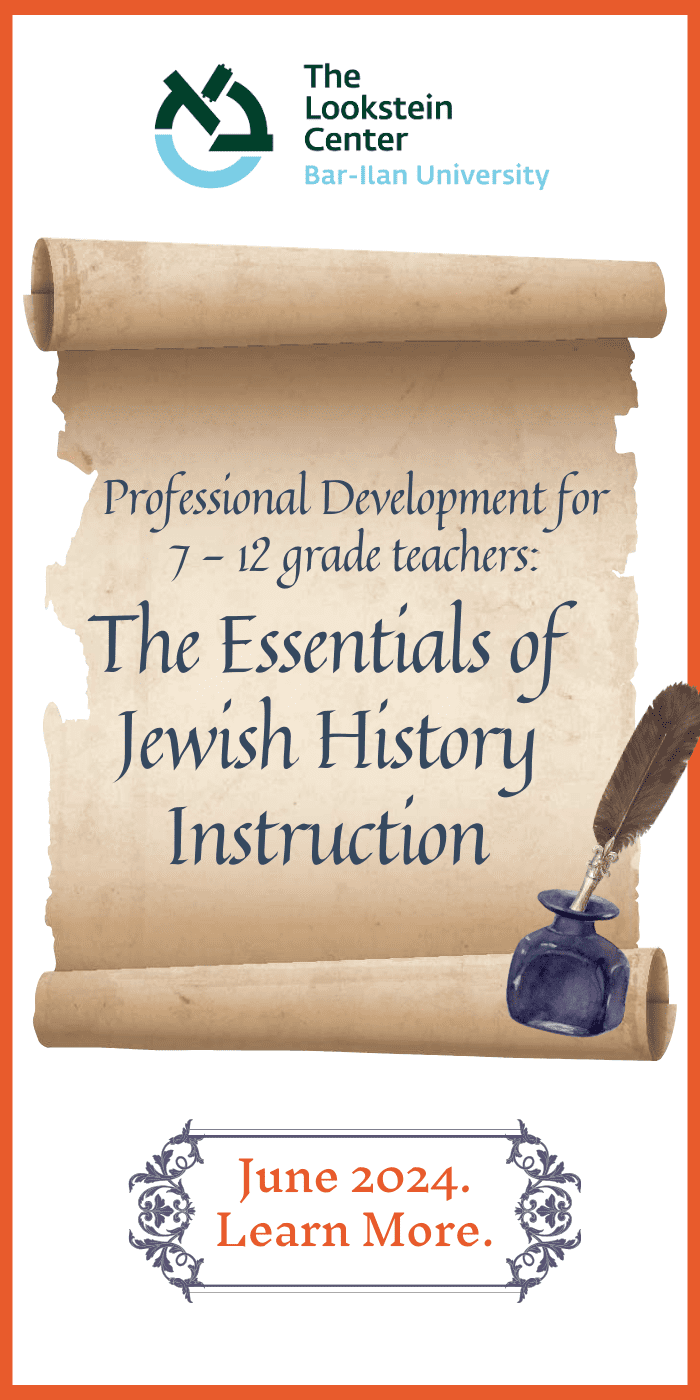Compromise for the Sake of Community: an Interview with Sam Weinberg
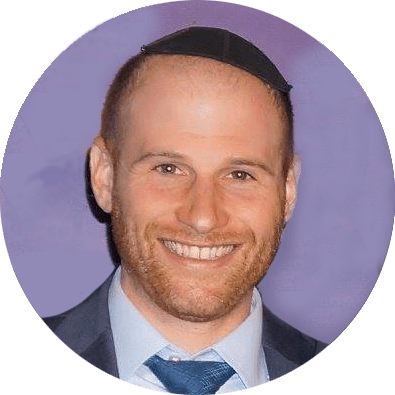
Sam Weinberg is serving in his 12th year as Principal and Education Director of Hillel Academy of Pittsburgh. Rabbi Weinberg holds a Master’s Degree in Education and Administration and Semikha from Yeshiva University.
Jewish Educational Leadership: To what extent do you see diversity as a challenge in your school and to what extent do you see it as an opportunity?
Sam Weinberg: First, I think that it’s important to remind ourselves that our diversity is defined in fairly narrow terms. We like to say that we are diverse, and that means that we span from traditional Conservative to right-wing Orthodox. Within that range, we like to celebrate our diversity, and that means that we can all learn from each other. That can be a challenge, since some in our community are very cautious about, if not openly hostile to, the idea of learning from those outside of their own group. It wasn’t always this way; I see more separatist trends developing in the last ten years, meaning that at least one segment of our population is growing increasingly insular. The community in general has become much more polarized, and some people only want to be with others who look and think like them.
The opportunity is that it lets us cast a wider net and make more people feel comfortable here. Look, no kids are the same and no families are the same. In extremely narrow schools there is a need for everyone to be identical, and that’s not real. Lots of kids or families just won’t fit in exactly. We have many students here who excel because we welcome a broad range, and they can feel comfortable; if they were in really separatist schools where they might fit better religiously or ideologically, they wouldn’t do well—they’d end up feeling like they don’t fit in. Here, people do fit in.
That also makes it hard because in a school like ours, we are always making compromises, which means that nobody is ever going to be 100% happy. But really, like no one is 100% happy. So, for example, someone might be very happy that their child is getting a solid Israel education, which they would not get in a more right-wing school, but they are not happy that there is basketball practice scheduled on Hanuka or that there is so much Yom HaAtzmaut celebration. Or, when it comes to the books we read or the choice of play we produce each year—people have strong feelings on both sides of the coin. To censor more or less, to do only secular plays, or to include some Jewish ones—there’s no way to make everyone happy. I’m sometimes tempted to make sweatshirts that say, “Hillel Academy: get used to being disappointed.”
On the other hand, we really are a beautiful and welcoming community, and I think that everyone understands and appreciates that. When people come here, they know that they may need to broaden their red lines—that’s part of what it takes to be part of a community and a school like this.
You’ve spoken about religious diversity, but there are many other kinds of diversity to discuss—physical diversity, racial diversity, socio-economic diversity, diversity of learning abilities. Which of these does your school deal with? Are there policies and procedures that are shared with students, faculty, and parents?
We are the only Orthodox Jewish day school in Pittsburgh. We have a very broad net, and we really try to accommodate all learners, even though it’s financially difficult. We provide a lot of support, in both Judaic and general studies, individualized learning plans, and radically differentiated classes. We are very, very hesitant to ever counsel kids out of our school because that usually means public school, so we are prepared to be incredibly accommodating for various types of learners.
Now, in terms of racial diversity, we don’t really have a lot of that. You know, obviously, the big diversity, which connects very much to religious diversity, is LGBTQ. We do not have any formal policies about it, but I wish that we could. Because we’re a small school and everyone knows what’s going on, even though we don’t have a formal policy, there’s a sense of acceptance; nobody makes a big deal about it, and as a school, we try to be as supportive as possible. We’ve had openly gay students, some who came out to me or one of the other administrators to help in broaching it with their parents. We’ve also had students who were exploring—there’s a lot of that going on nowadays. A lot of this happens during the high school years, and the balance in our high school is a little different from the elementary school because many of the more right-wing students tend to go out of town for high school. This makes it a little easier to deal with.
When it comes to financial diversity, we are socio-economically very diverse, which is sort of unique for North America. Well over half of our school is on scholarship, and of those, many are really economically stressed. What’s interesting about that is that there are few financial expectations. It’s not like in certain cities or suburbs where everyone is doing well and therefore there are these expectations, and I see tremendous berakha in our situation. Kids here aren’t spoiled. For Bar and Bat Mitzvas everyone gives what they can and then we buy the same gift for everyone. And that’s it. Nobody gives gifts separately. And the Bar Mitzvah party itself is really simple—a pizza party at someone’s house. And the kiddush in shul is basically put together by the sisterhood. And we’re proud of that, but it also has its challenges. For example, the baseball tournament this year in Columbus, Ohio cost $6,000. So other schools will charge their students and it will cost them about $1,000 each. Now, I could do that too, but I know that only six students will be able to pay. In theory, the school could provide subsidies, but at the expense of what? Can I really raise money for a baseball tournament when we have more basic needs that need to be covered? And I don’t want to have some kids go and others not. We had something similar for our basketball team. They wanted to get hoodies, but not everyone could afford them. In the end, someone sponsored them for the team, which was nice, but could that $10,000 have gone to a better purpose?
You’ve described juggling a somewhat broad range of diversity in elementary school and a little less broad in high school. When does maintaining that take get difficult?
It’s always a challenge, it’s something you always have to be mindful of. In elementary school and early childhood, it’s usually just how you phrase things. I’ve had a situation where a kid comes home and says, “My teacher told me that I’m not Jewish because I celebrate Halloween.” What probably happened is that the kid asked about Halloween and the teacher responded that it was not a Jewish holiday, which the student interpreted as: “Well, if it’s not a Jewish holiday and I celebrate it then obviously I’m not Jewish.” So it’s really important to be mindful of how we say things and to remember who we’re talking to. For example, in elementary school, we try to use language like, “Traditionally this is what Jews do,” or “This is what halakha says,” as opposed to, “This is what you are supposed to do.” In the high school, even though the hashkafic spectrum isn’t as broad, there is a lot hanging on what we teach. For example, for the right-wing community, one of the most important issues is how the girls dress—that is a defining, if not the core issue in a teen girl’s education. Similarly, anything having to do with women studying Talmud is an issue. So we have to be really mindful about what we are teaching and how we are teaching it.
How do you manage that situation? How do you coach the teachers? Are the nuances of language something that you share with the teachers up front?
I definitely share it with teachers. It’s very clear, and I do that with all new teachers. Every so often there’s a teacher who pushes the boundaries intentionally, and then I need to get involved. The language thing is something we address during the new teacher orientation and it gets especially tricky in areas of halakha. For some teachers, Humash is very morals-driven, like the way yeshiva and seminary graduates were taught—they will learn random selections from Rashi or midrash with a polemic angle. Sometimes we will do an in-service on this and there’s usually not too much push-back even though they’re being exposed to something that’s different from what they experienced. So, for example, if I show them something from Rav Menachem Liebtag they think that it is incredible, they might have never heard or thought of anything like that. But it is very much teacher-dependent. Some teachers are just very sensitive and thoughtful, some are incredibly knowledgeable, and because they have such a deep understanding they can make really good choices. And sometimes these issues affect what classes I will assign teachers to.
When it comes to hiring, we work hard to try to have a diverse staff, and we’ve come a long way since I started. When I first came, the faculty was almost exclusively from the Kollel. We now have some faculty from Yeshiva University as well as some shelihim from Israel. And there are some people with more liberal approaches to Judaism but they tend to keep that out of the classroom, especially in the younger grades. Some of the parents know and others don’t, and those who know don’t really care so much because their kids are getting a good education and that’s more important to them; that’s why they send their kids here. The truth is, keeping the staff diverse is difficult especially nowadays; the teacher crisis is especially pronounced in smaller Jewish communities.
So are you able to establish policies?
We do have policies, but they’re very broad. Ultimately, it’s not about the policies but about doing what’s best for the students. So on a case-by-case basis, we try to figure out what’s going to make the fewest kids uncomfortable. That’s true in terms of choosing what to teach, in terms of choosing what music will be playing in the car on a trip to Washington, and everything in between. There’s no need to teach things that will be very controversial; there are a lot of other things to learn. So, we don’t focus on many of these issues precisely because they are so loaded, but that’s also somewhat problematic because there are important things to learn about that never get touched upon. That’s something we have to live with because our focus really is whether the students are well cared for. And here, that’s more important than any of the other potentially divisive issues.
I always try to bring the conversations back to what’s best for the students.
Girl’s sports was a big issue. We have basketball teams and cross-country running. In the past, girls were not allowed to play in front of boys at all, no matter what they were wearing. We decided that that did not make sense for our students. We started with the 5th and 6th grades, and it was a big deal. Now men can come to all the games to watch and we play in regular leagues. That’s good for the kids. Are there individual girls who don’t play as a result or whose parents don’t want them to play in front of men? Probably, and I feel bad that they get left out. But overall, it’s good for the students because so many of them do want to play and do want their parents to be able to watch, and when people see how good it is for the girls they sort of accept it even if they’re not fully happy about it.
We try to balance it out so that it is not always one side that is compromising. Despite the fact that historically we never did Jewish plays, we decided that this year we would. We really try to make everyone happy, but as I said before, nobody is happy all the time, and that’s because of the diverse makeup of the school and because I try to keep the issues away from the religious-ideological arena and focus them on what’s best for the kids.
And there are limits; there are red lines. Usually, the deciding factor in all of this is halakha—if it’s clearly forbidden, then that’s a red line we will not cross. Even there, deciding which posek, which Rabbinic authority, we turn to was not simple, but after a long process we settled on someone that everyone could accept, even if he was not their first choice. And even here, what kinds of questions would we be posing? Some want him to decide on all matters, including things like who to accept or not accept into the school, while others want to limit the kinds of things we ask. So, for example, our 4th grade was invited to sing the national anthem at a Penguins game. Some people wanted to know if it was permitted for girls to join in the singing. So we asked and he said that it was fine.
What about political issues? For example, COVID policies tore apart many communities.
It’s pretty amazing how people tried to turn COVID into a religious, hashkafic thing. The Modern Orthodox schools all reacted one way while the more yeshivish schools all reacted in a completely different way. We took the path of following medical policy, and lots of people were upset about that. It became a big point of contention. There were people who left the school because of it; they moved to Florida and Texas. What makes this interesting is that our neighborhood in Pittsburgh, in general, is in an extremely liberal area. So when it came to COVID there was a lot of programming with non-Orthodox schools and non-Orthodox shuls, the JCC did a ton of programming with those types of organizations.
Is there anything else you want to add?
This struggle is real, but I probably downplayed some of the positives. It is a beautiful environment and I do think it’s a model that is very psychologically healthy. There is a big problem in general that everyone is in their echo chambers and people don’t understand different perspectives; we are forced to confront other people’s perspectives, and not just confront, but find meaning and value in them every day. I think that’s a really important point. I see it every single day. It’s a healthy dialogue that takes place that I don’t think you get in other places. Because nobody fits perfectly, it is easy for everyone to feel accepted. I do think our kids will be graduating as well-rounded kids who appreciate different perspectives. So all the struggle and hassle is worth it, and I think that the kids really get it.



Reach 10,000 Jewish educational professionals. Advertise in the upcoming issue of Jewish Educational Leadership.
Do you want to write for Jewish Educational Leadership? See the Call for Papers for the upcoming issue.
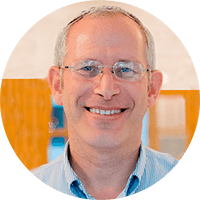

FROM THE EDITOR: SPRING 2024
In the 1970s, UJA’s rallying slogan was: “We are One.” Indeed, those were the days in which the Jewish community banded together over three core principles—commemoration of the Shoah, saving Soviet Jewry (and Syrian Jewry and Ethiopian Jewry), and Israel. The past fifty years have eroded each of those. People are tiring of the Shoah and are eager to move on from what Salo Baron termed the “lachrymose conception of Jewish history.” Soviet Jews left en masse in the 1990s with the fall of the Berlin Wall and the collapse of the Soviet Union, and Jews of Syria and Ethiopia have mostly migrated and resettled as well. And Israel, which is itself grappling with unparalleled polarization, no longer serves as a uniting factor for many North American Jews. All this leaves us, fifty years after the UJA banner, with a dramatic shift in punctuation:
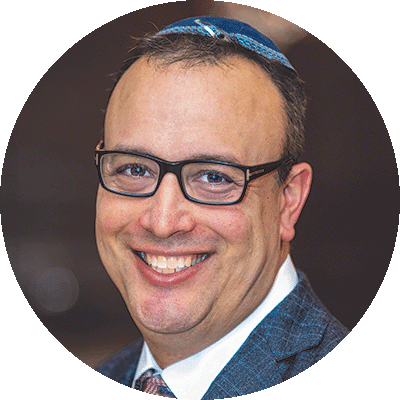

Accepting and Representing the Greater Jewish Community: an Interview with Jonathan Levy
We represent the Greater Toronto Jewish community, which means what we see in the Greater Toronto Jewish community is what we want to see here at our school. That can mean the whole range of diversity. It can be religious backgrounds, it can be a physical disability, it can be academic challenges. Of course, we do have limits in terms of what we can do and what we can’t do. We can’t be everything to everybody, but our goal is to be a diverse community that represents the Greater Toronto community. If you see it out there in the Toronto Jewish world, hopefully, you will see an element of that in our school as well,
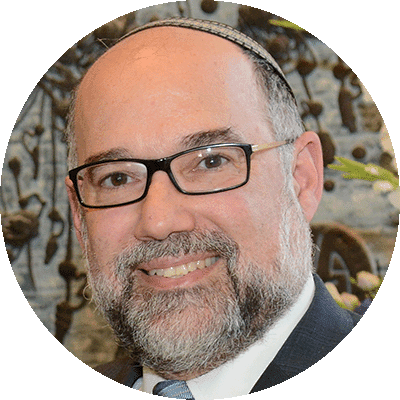

Realities and Opportunities of Diversity in an Orthodox School: an Interview with Leonard Matanky
I see diversity as a reality. Because our schools have always been diverse, the question is, how diverse should our schools be? On the one hand, we can talk about tribes, every tribe had its own personality, and those personalities didn’t always mesh so beautifully, like the way that Yissakhar and Zevulun are often presented. So, I see diversity as something that has always been present. I think the one challenge we have, when it comes to the question of diversity is the very same kinds of things that Jonathan Haidt talks about when he talks about the moral foundations theory and how we view that diversity within a religious institution. And so, our school has always been a diverse
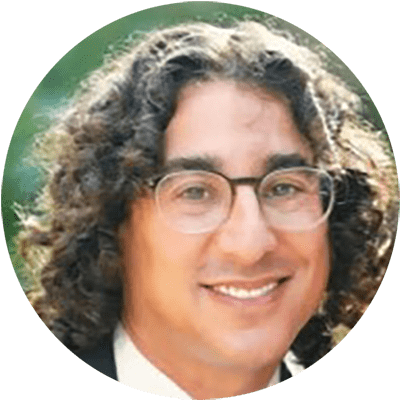

Aspiring to Expand our Circle of Inclusion: an Interview With Jon Mitzmacher
The opportunity is to ensure that our students come through their experience with an opportunity to learn about and learn with those who may be different than themselves, different across a variety of categories, whether it’s socio-economic, whether it’s learning differences, whether it’s with ideological differences, the value is in experiencing themselves as part of a diverse kehilla. The challenges, I would say, are divided into two broad categories. Most of the kinds of diversities that are challenging for schools boil down to economics;
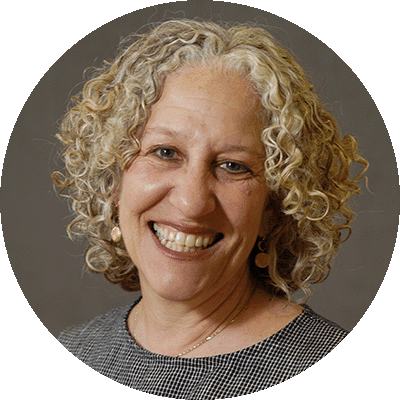

Embracing Diversity, Building a Stronger Jewish Future: an Interview with Nicole Nash
I’m going to start with opportunity because, to me, the opportunity outweighs any challenges. I’ve been in the field for a long time, and when you work in Jewish education, you meet so many children, parents, faculty, staff, and community members. I’ve had the privilege to see just how diverse the Jewish people are. When we are at our best, our diversity can be a real source of strength and celebration of Jewish peoplehood. When I say diversity, I think about it across ethnicity, race and nationality, Jewish identity and practice, interfaith family composition, sexual orientation, gender identity, life experience, socioeconomic status, worldviews—the list goes on and on.
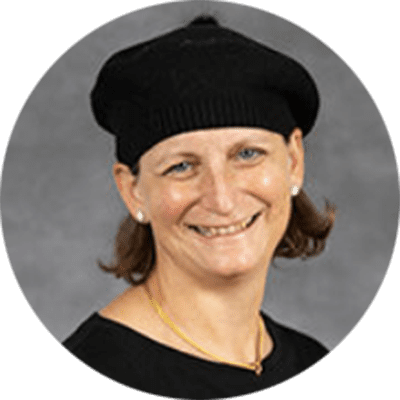

Cultivating Individuality and Cultivating Belonging: an Interview with CB Neugroschl
Diversity is both a deeply meaningful value and also a pop language word that means many different things to different people. When I was a Jewish philosophy teacher, diversity in our curriculum was about the relationship between Jews and non-Jews and about how we understand Hashem’s mission for both. When I speak about diversity today here in Teaneck, I recognize that we are talking about a very tiny slice of the diversity pie. The reality is that we are an all-girls Orthodox high school serving a fairly homogenous community. Of course, there are going to be nuanced differences, but the bottom line is that all those differences are within a fairly narrow band on the spectrum. So, here’s some background on where diversity is important in our context.
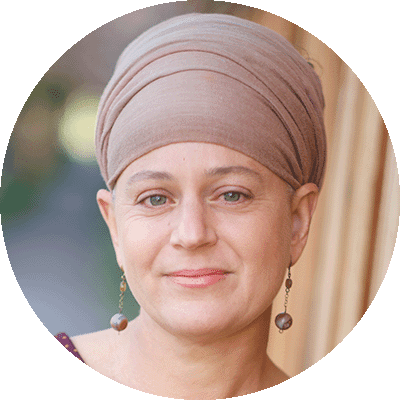

Ahavat Yisrael in a Small Jewish Community: an Interview with Tania Schweig
We’re a small community and our school has about 165 students. We’re quite stable in our enrollment and there are those who come and go because of the university. I feel like there’s a tremendous importance in small communities like ours and also a tremendous gift in these small communities. And I think our community has this special quality of ahavat Yisrael (love for our fellow Jewish people). I think that it’s important to say this because it is connected to the work of diversity. I really appreciate—like genuinely love—diversity. I like being in a place where it’s safe to be all kinds of things; it mirrors my own path. When I was in Pardes in Israel, I got to choose my path, I didn’t want to be in a box measuring up to someone else’s standards. For example, I wanted to be the person who’s becoming observant yet who is also asking questions about feminism.
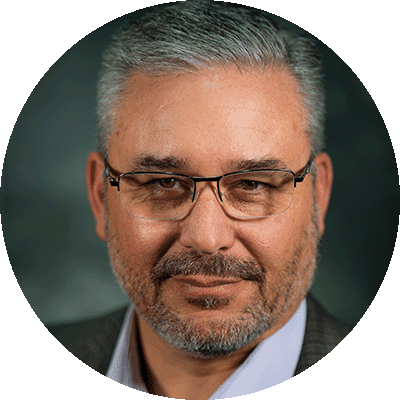

Diversity, Kindness, and Developing A+ Human Beings: an Interview with Mark Shpall
I try not to see it as a challenge. I really do see it as an opportunity because our students will continue to grow and go off to college, where they are going to be exposed to the real world, working with and interacting with people of all different backgrounds, ethnicities, learning abilities, appearances, etc. So we have the opportunity here to start or continue to process being open to that. We really try to do that from day one. In fact, we start school a week from today, but we are doing our retreats for our ninth and tenth graders starting now. Those retreats are all about the process of students opening themselves up to others in different ways and in different formats. We talk to our students about our core values, we want to talk about them so often that they start rolling their eyes at us because


